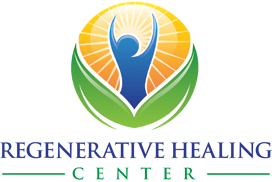Honduras is a beautiful country. There are beautiful coastal areas that look out into the Caribbean Sea on its East coast and onto the Pacific Ocean along its West coast. The tropical climate provides the right conditions to produce a huge variety of many fruits and vegetables. This produce is readily available from the street vendors, freshly picked and delicious. This is why it is exasperating that somehow, they cannot get their political act together to channel these resources into a thriving economy. To the contrary, the economy is struggling and poverty is the norm.
For 2 weeks, I had the merit of serving on a prolotherapy medical mission in Honduras. This was the 49th year that the Hackett-Hemwall-Patterson Foundation has conducted this mission. The organization is named after 3 of the pioneers of prolotherapy. They were leaders in teaching prolotherapy while Hackett developed the treatment in the 1940’s. I met Drs. Hemwall and Patterson in 1997 when I first learned prolotherapy. One of the patients I treated had been treated at previous mission by both Dr. Hemwall and Dr. Patterson. It felt like I was part of a chain of the pioneers of the field.
The patients we saw in the clinic varied. Almost half of patients are returning after they received treatment during a previous year. They eagerly look forward to our mission every year. Often, they had great relief with the treatment and now want a tune up for a part already treated such as an arthritic knee. Other times, they present for a new body part to be treated, looking for the same great result that the previous prolotherapy provided for a different area.
The people of Honduras are very warm and appreciative for the services we provided at the clinic. They are also very proud of their country. They love to talk about the beautiful places to see in Honduras. They also expressed their national pride with gifts that highlighted the connection to the country, whether it was a Honduran coin or a local delicacy such as plantain chips. Those gifts epitomized both their appreciation and their national pride. Another characteristic of Hondurans is that they work very hard. The vast majority of our patients are doing physical labor, using their bodies to the maximum capacity. Often, they are walking long distances just to get to their workplace. As a result, they have pain in multiple joints and multiple tendons.
The mission itself was focused on prolotherapy. This is a treatment that builds tendons and ligaments with the use of a dextrose solution placed on the injured areas. This solution creates a mild irritation. In response, there is increased blood flow to the treated area with the migration of growth factors that lead to stronger tissue. When the tendons and ligaments are stronger, there is less pain in the short term and a stronger joint for the long term. The great part of prolotherapy is that the treatment stimulates the body’s own healing mechanisms so it is a natural way to heal.
Prolotherapy is a valuable treatment to offer in a mission setting because it is so versatile. That is, prolotherapy helps such a variety of conditions that we were able to help almost any pain condition. Whether a patient came to the clinic with a tendonitis such as tennis elbow or rotator cuff tendonitis, or an arthritic joint such as knee arthritis or hip arthritis, prolotherapy is invaluable in improving the condition. Neck and back pain are often caused by weak ligaments resulting in increased stress on the discs and muscles. Prolotherapy was able to help many with neck and back pain. Ligament problems such as wrist strains and ankle sprains respond beautifully to prolotherapy. We also treated many patients with plantar fasciitis.
Many patients have no access or limited access to health care. The vast majority of patients we saw had no prior treatment and often no medical evaluation prior to visiting the clinic. Whether the pain started a few months earlier or a few years earlier, we were the first doctors they were seeing for that problem. One gentleman I saw sustained a tibial plateau fracture as a pedestrian a few months earlier. He stated that he went to a medical clinic but no x-ray was done and he was sent home. He was with a fracture deformity but 3 months after the injury, there is not much that can be done orthopedically. Unfortunately, he will still have the deformity but he was happy that his pain improved by threating the ligaments.
By our presence in Honduras, we provided the people there with access to a phenomenal treatment that many are not aware they have access to here in the wealthiest nation in the world. That is because there are only a limited number of physicians that have the skills necessary to perform prolotherapy. Prolotherapy requires training to learn the ligament and tendon attachments and a physician has to be highly motivated to learn this skill. Fortunately, more are learning about it and realizing its great benefit. This is encouraging, especially since some of the treatment option that are commonly used have potential complications, such as steroid injections which may eat away at soft tissue so should be used sparingly on a limited basis and surgery, which has numerous complications and usually cuts out tissue which can weaken the structure over time. This contrasts with prolotherapy, which strengthens tissue and leads to long-term healing.
In summary, it was a privilege to serve the people of Honduras with a great treatment for those who have very limited access to quality care. The Hackett-Hemwall-Patterson Foundation goes on this trip every year so if you are interested in learning about a culture while performing a great service or if you are a physician who wants to learn a great treatment and you want to volunteer, please let me know.
